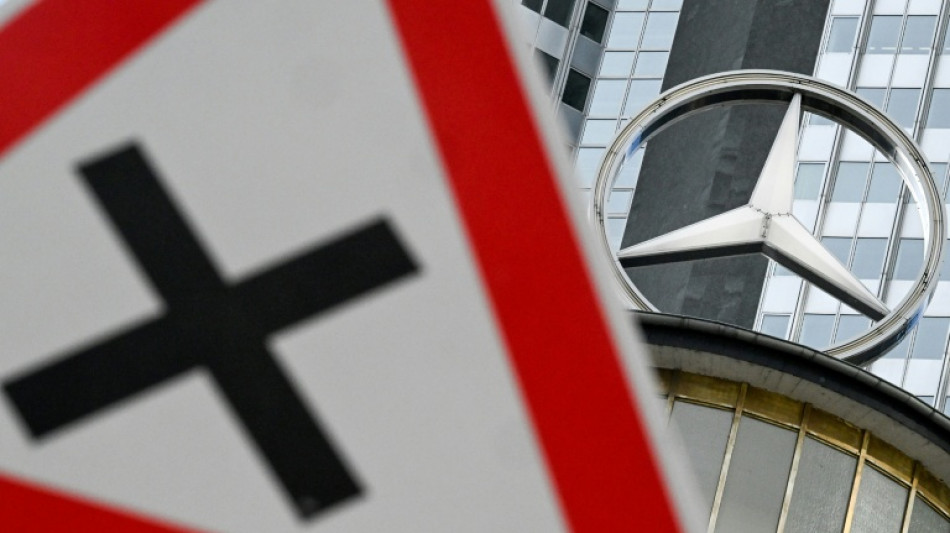
Mercedes-Benz reassures on Nexperia chips as profit plunges

German premium carmaker Mercedes-Benz sought to reassure investors Wednesday over a feared shortage of microchips as it reported plunging third-quarter profits.
"For the short-term we're covered, and it goes without saying we are scurrying around the world to look for alternatives," Mercedes boss Ola Kaellenius said on a call with analysts and investors.
Chip shortage fears were stoked earlier this month after Dutch officials took control of the Netherlands-based but Chinese-owned Nexperia, citing national security concerns.
That prompted authorities in Beijing to ban the export of Nexperia chips out of China.
Hundreds of the chips are found in a typical car's onboard electronics, and industry players are now scrambling to find new suppliers.
Volkswagen last week warned that it could not rule out "short-term" production stoppages following the Chinese export ban.
Kaellenius said Wednesday that the crisis required a "political solution" rather than a firms rejigging their supply chains.
"The chip crisis is a politically induced shortfall in which the main dispute is between the USA and China, with Europe in the middle."
For the third quarter, Mercedes reported a 30.8-percent plunge in net profit to 1.19 billion euros ($1.38 billion), dragged down by US President Donald Trump's tariff blitz as well as slumping sales in China.
That nevertheless beat analyst expectations of 1.09 billion euros in a poll by financial data firm FactSet. Mercedes shares opened up 6 percent in Frankfurt trading.
"Our third-quarter results are in line with our full-year guidance," Kaellenius said.
In July, the firm lowered its outlook for the year in the wake of Trump's tariff onslaught. It said it expected revenue for 2025 to be "significantly below" the 146 billion euros it took in last year.
Car exports from the European Union are subject to a tariff of 15 percent under an EU-US deal unveiled late July. That is down from 27.5 percent, but still far higher than the 2.5 percent in force before Trump launched his trade war in April.
Mercedes-Benz -- which has a plant in Tuscaloosa, Alabama -- also has to grapple with US duties of 25 percent on imports of car parts that come from outside North America.
In the key market of China, meanwhile, sales by volume fell 27 percent in the third quarter, helping drag overall sales down 12 percent.
China, the world's largest car market, has become a battleground for German carmakers amid a brutal price war and fierce competition from local players like BYD.
Kaellenius told analysts and investors on the call that Mercedes was working closely with Chinese self-driving software firm Momenta to make cars competitive for the local market. But a turnaround, was "a multi-year task", he added.
"Looking ahead, we expect the market environment to remain challenging," he said.
"Hyper competition in China is not going away anytime soon."
C.Blanc--PS

 London
London

 Manchester
Manchester
 Glasgow
Glasgow
 Dublin
Dublin
 Belfast
Belfast
 Washington
Washington
 Denver
Denver
 Atlanta
Atlanta
 Dallas
Dallas
 Houston Texas
Houston Texas
 New Orleans
New Orleans
 El Paso
El Paso
 Phoenix
Phoenix
 Los Angeles
Los Angeles



